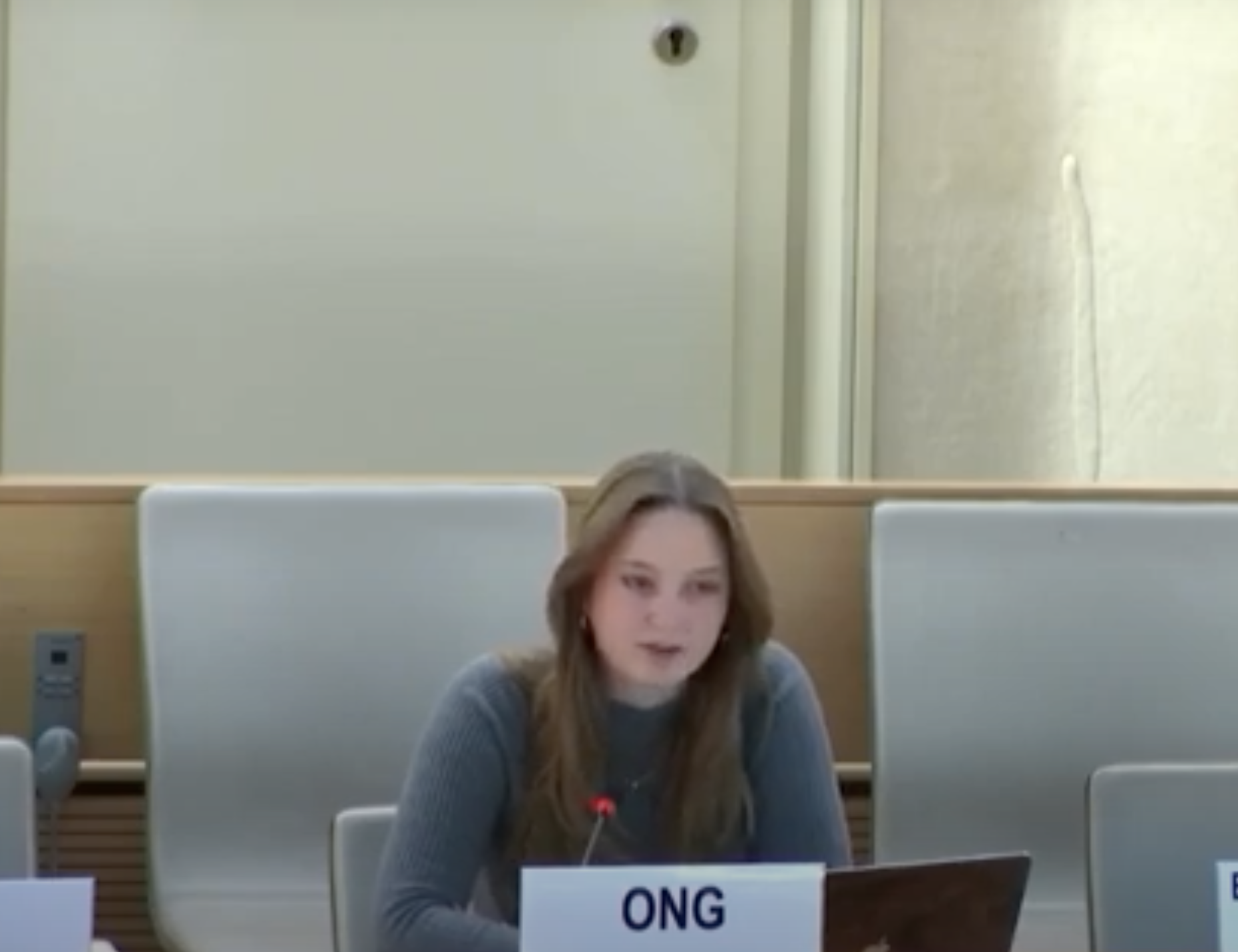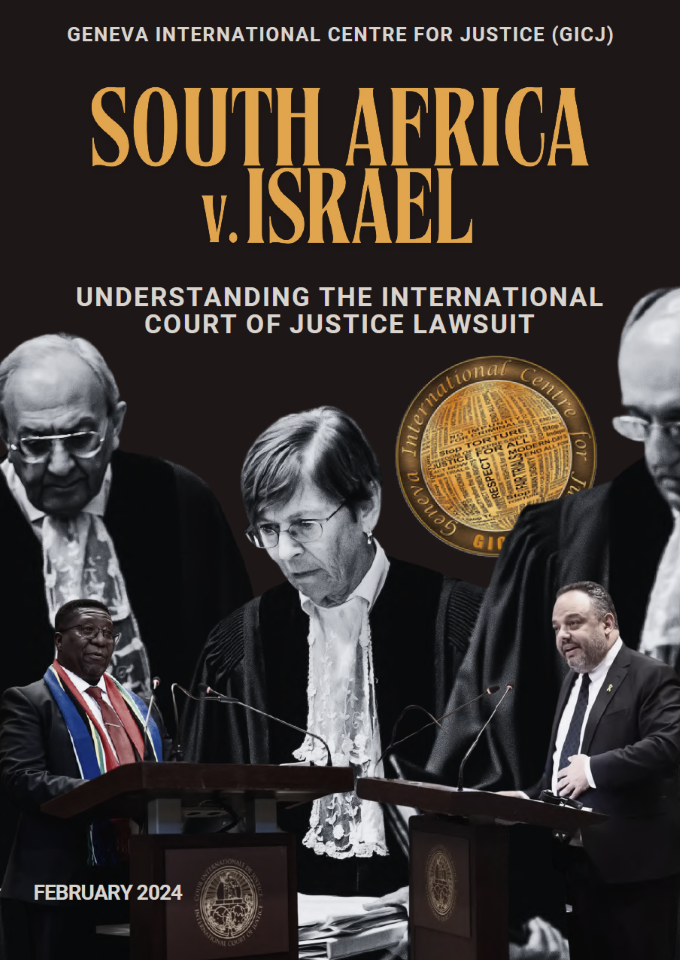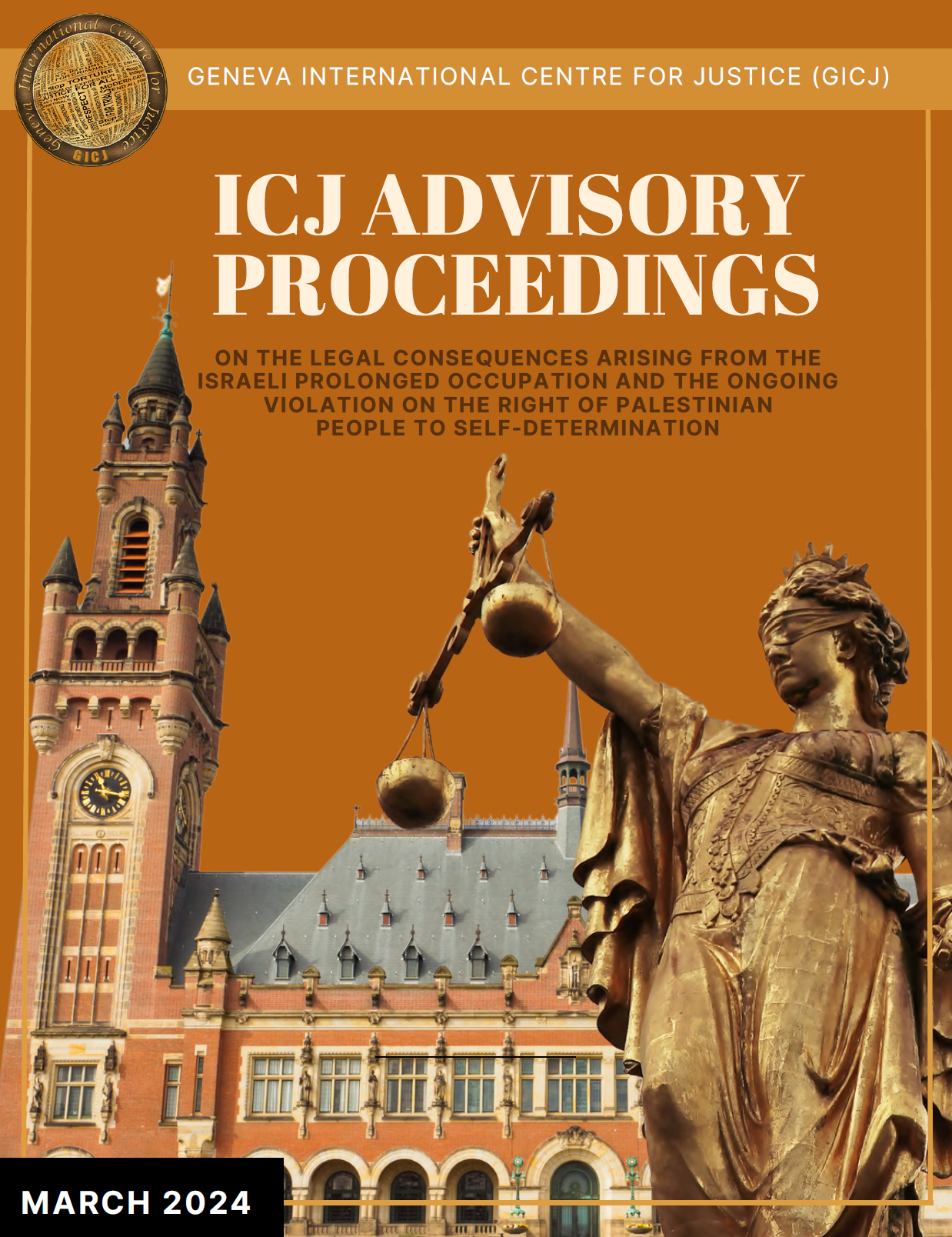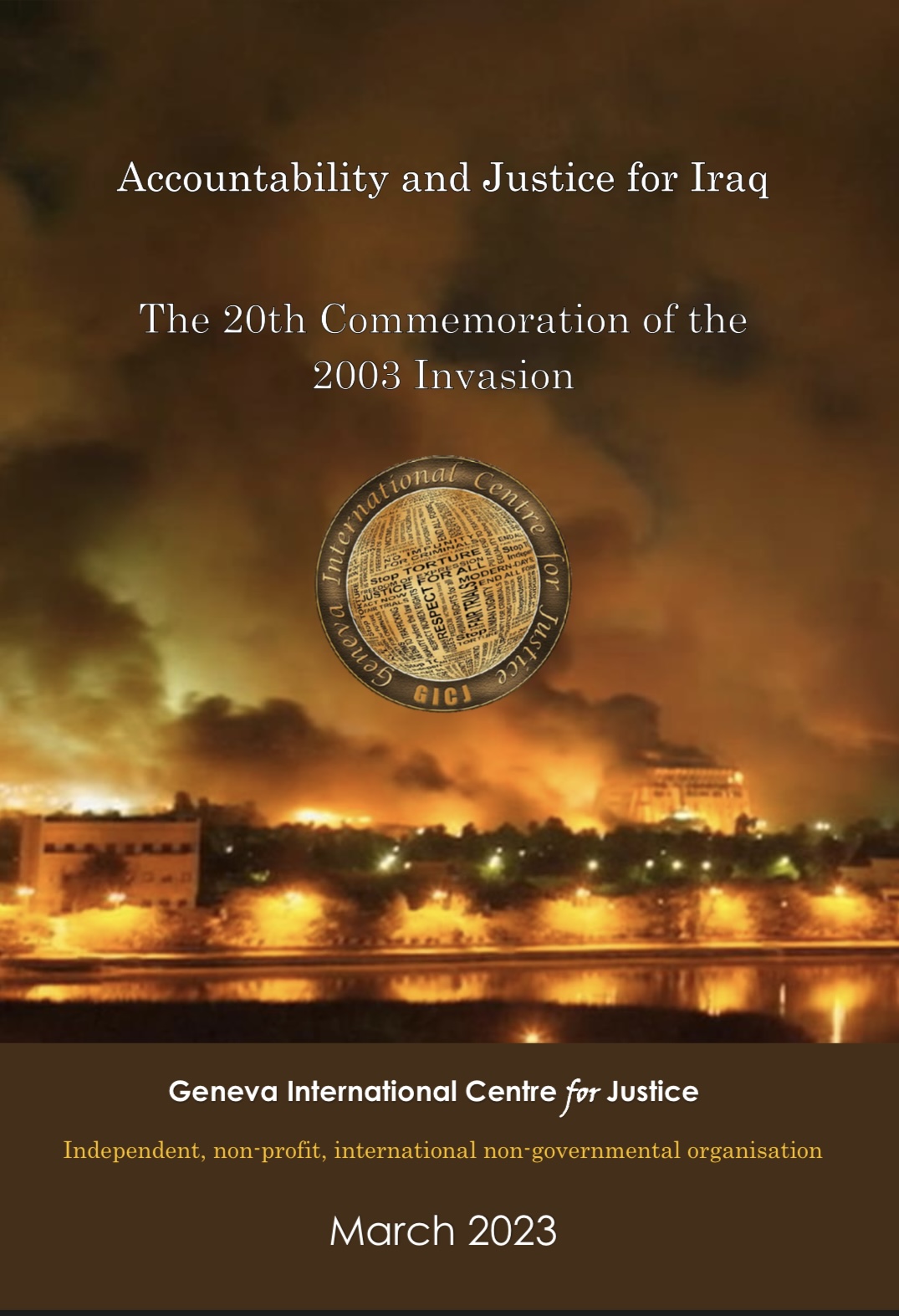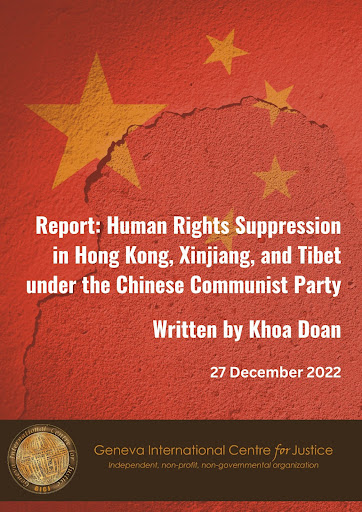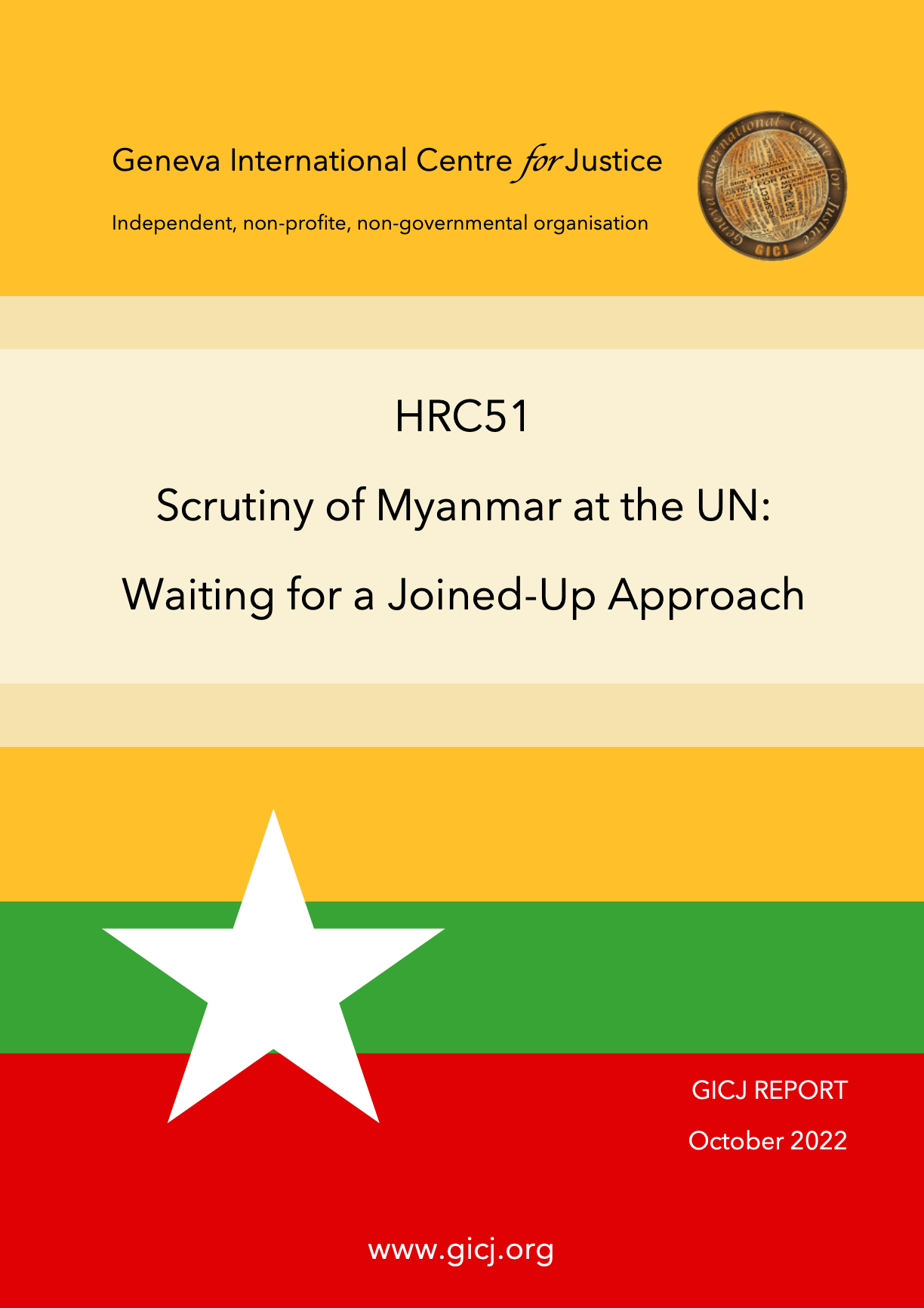UPR – Third Report of the Kingdom of Bahrain
On May 1, 2017, Mr. Abdulla Faisal Al Doseri, Assistant Foreign Minister of Bahrain presented the third national report of the Universal Periodic Review of the Kingdom of Bahrain on its human rights commitments and application of previous recommendations. Following the Universal Periodic Review of September 2012, Bahrain fully supported 145 recommendations, partially supported 13 and rejected 18 recommendations.
The third report was prepared after inclusive consultations with governmental agencies and civil society and included the measures taken to implement the recommendations of the second UPR.
Presentation of the National Report

During the presentation of the third national report, Mr. Al Doseri outlined the status of implementation of the recommendations made during the UPR session of 2012 and identified the main challenges faced by the government in the promotion and protection of human rights.
Treaties and international human rights mechanisms: Bahrain is taking steps to examine and ratify the CAT and the ICPPED, is working on the capacity building of the law enforcement with help of the OHCHR, and has contributed to the work of OHCHR with $150,000.
Respecting human rights, including capacity-building: Bahrain established the necessary rules to regulate the right of citizens to assemble and participate in peaceful marches, made efforts to consolidate the rule of law, set up trainings for all members of the judiciary, and established a Code of Conduct for Police Officers, which ensures that police officers respect their human rights obligations in all circumstances.
Constitution and national legislation: Bahrain passed amendments aimed at harmonising the national legislation with international standards.
Criminal justice: Bahrein established the Special Investigation Unit (SIU) - an independent body that applies international standards in the investigation of allegations of torture and inhuman treatment.
National Institution for Human Rights: Bahrein reaffirmed the independence of the National Institution and its compliance with the Paris Principles.
Implement all recommendations of the BICI: Bahrain declared complete implementation of the Bahrain Independent Commission of Inquiry recommendations, monitored by the National Commission.
Women and gender equality: Bahrain continues its efforts to promote gender equality and ensure women’s political, social and economic place in society within the framework of the Sharia law. Such efforts included the launch of the National Plan for the Advancement of Bahraini Women 2013-2022 and the promotion of economic empowerment of women.
Nationality: Act of 1963 allows Bahraini citizenship to be granted to the children of Bahraini women married to foreigners under specific rules and criteria.

National legislation on education and disabilities: Bahrain provides education for people with disabilities and special needs.
Police training in respecting human rights: Bahrain is supporting the capacity-building of the Bahraini police in the context of the obligation to respect human rights in law enforcement.
The rights of the child: Bahrain restructured the National Committee for Childhood and launched the National Childhood Strategy 2013-2017.
The media and the press: in Bahrain, access to information and the Internet is a constitutional and legal right, executive and judicial measures have been taken to prohibit any incitement to sectarianism and violence, national or religious hatred or racism in the media, and journalists are supported to fulfil their mission freely and independently.
Human rights defenders: in Bahrain, the Constitution guarantees freedom of opinion and expression.
Combatting human trafficking and labour law: Bahrain established a National Committee to Combat Trafficking in Persons, which devises programmes to prohibit and combat human trafficking, protect the victims of human trafficking from renewed victimization.
Bahrain partially supported 13 recommendations concerning amendments made to the CEDAW and the CED, and noted 18 recommendations concerning, inter alia, accession to the Second Optional Protocol to the International Covenant on Civil and Political Rights on abolition of the death penalty. Such recommendations have not been fully supported because they conflict with Sharia, the Constitution or national legislation, or because they require further study.
While concrete efforts are being made, the Kingdom of Bahrain continues to face several challenges and obstacles that hinder the full implementation of all recommendations. Such challenges include the growing danger of extremism and terrorism in the region, the politicised exploitation of human rights issues, and the limited natural resources in the region as well as the global financial crisis.
During the third Universal Periodic Review, the Compilation of UN information and the Summary of stakeholders' information drafted by the OHCHR were also taken into consideration. During the session, Member States drew from such compilations and made their recommendations to the Kingdom of Bahrein.
Compilation of the Office of the United Nations High Commissioner for Human Rights
Such compilation includes information contained in the reports of treaty bodies and special procedures and other relevant United Nations documents.
The OHCHR noted that the CEDAW encouraged Bahrain to ratify the OP-CEDAW and to consider ratifying the CMW and the ICED. The OHCHR also urged Bahrain to ratify the Second OP-ICCPR, aiming at the abolition of the death penalty.
Furthermore, the country team noted that the political situation in Bahrain had stagnated since the second cycle of the universal periodic review, in 2012. Since then, increasing violence and repression have dangerously hindered national dialogue and prevented the effective implementation of the recommendations accepted.
OHCHR assessment of the implementation of the recommendations and the international human rights obligations
Equality and non-discrimination: the CEDAW called upon Bahrain to modify or repeal, without delay, discriminatory legislation, including discriminatory provisions in its Penal Code and Nationality Law.
Human rights and counter-terrorism: the UNDP noted that the Bahraini authorities use the antiterrorism law to detain and prosecute journalists and rights activists for belonging
Civil and political rights
Right to life, liberty and security of person: Despite the recommendations, Bahrain has not eliminated death penalty. The OHCHR expressed concern about the harsh treatment of the detainees, as the security forces have reportedly used rubber bullets, tear gas and shotguns to calm riots in detentions facilities.
Administration of justice, including impunity, and the rule of law: the country team noted that the Constitution forbids torture and that the Penal Code criminalises torture: yet cases of torture continue to happen and the results of national investigations have not been made available.
Fundamental freedoms and the right to participate in public and political life: amendments to the national constitution provided that under no circumstances could anyone combine religious preaching and membership in a political society. Furthermore, a group of United Nations human rights independent experts expressed concern about the systematic harassment of the Shia population by the authorities. The country team also reported that freedom of information and access to information are not guaranteed in the Constitution. Moreover, the Special Rapporteur on the situation of human rights defenders was extremely concerned about clauses that criminalise offending the King, the flag or the national emblem of Bahrain, as well as the National Assembly and other State institutions. Finally, the country team and OHCHR reported that freedom of expression was being targeted in law and in practice and expressed concerns regarding the recent measures adopted by the authorities restricting the movement of citizens (since May 2016 the authorities have imposed travel bans on several human rights defender).
Prohibition of all forms of slavery: The CEDAW reiterated its concern about the prevalence and extent of trafficking in girls and women to Bahrain for the purposes of forced labour and sexual exploitation.
Right to privacy and family life: The CEDAW remained concerned that under existing laws women continue to be denied equal rights with men with regard to family relations, in particular marriage, the legal age of marriage, divorce, child custody, citizenship, guardianship and inheritance.
Economic, social and cultural rights
Right to work and to just and favourable conditions of work: The CEDAW is concerned that women continue to be disproportionately affected by unemployment and discrimination relating to work
Right to health: the country team expressed concern for the fact that abortion is criminalized even when the pregnant woman is the victim of rape or incest.
Rights of specific persons or groups
Women: The CEDAW called upon Bahrain to prohibit and sanction both direct and indirect discrimination against women. Furthermore, the Committee reiterated its concern that several provisions of the Penal Code condoned acts of violence against women by exempting perpetrators from punishment (in particular if they marry their victims).
Migrants, refugees, asylum seekers and internally displaced persons: the UNHCR reported that Bahrain does not have domestic legislation on refugees.
Stateless persons: the UNHCR estimated that there are approximately 1,000 stateless persons in Bahrain, mainly because their nationality has been revoked. A group of UN experts was concerned about the systematic harassment by the authorities of Shias, many of whom have been stripped of citizenship.
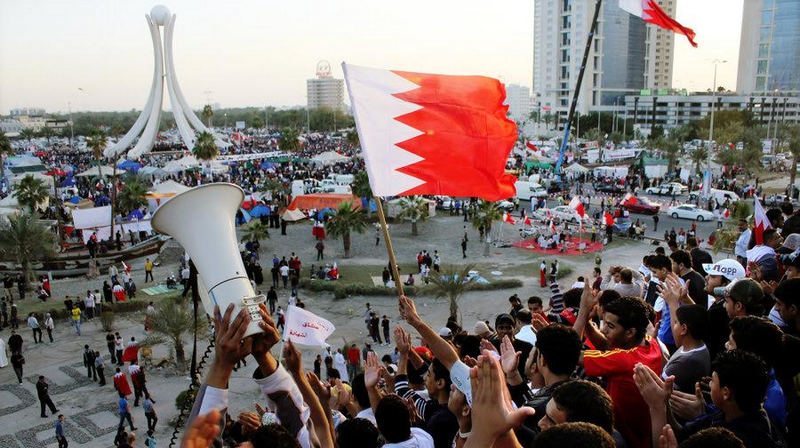
Summary of stakeholders’ submissions on Bahrain drafted by the OHCHR
The summary was prepared by the OHCHR taking into consideration 43 stakeholders’ submissions to the universal periodic review.
Several stakeholders urged the Kingdom of Bahrain to ratify all the relevant UN Treaty Bodies necessary to ensure full protection of human rights, including those of minority groups.
Stakeholders’ assessment of the implementation of the recommendations and the international human rights obligations
Equality and non-discrimination: two organisations claimed that the authorities are working to systematically exclude Shia culture from the country’s official history, media, and educational curricula.
Human rights and counter-terrorism: six organisations observed that the amendments in 2013 and 2015 of the Anti-Terrorism Law restrict fundamental freedoms and threaten peaceful activists, human rights defenders and members of the opposition.
Civil and Political Rights
Right to life, liberty and security of person: Despite the recommendations, death penalty remains in force, often during unfair trials, in the Penal Code and the Terrorist Acts (No. 58/2006) for murder, terrorism-related offences and other crimes, including drugs offences. Torture and other ill-treatment represent a major human rights concern as torture is still a common practice, particularly of detainees arrested on suspicion of terrorism or other security-related offences. In Bahrain, prisoners are held in correctional institutions that do not meet the Minimum
Rules for the Treatment of Prisoners.
Administration of justice, including impunity, and the rule of law: five submissions noted that unfair trials of government critics and opponents, including protesters, have become common practice.
Fundamental freedoms and the right to participate in public and political life: several organisations noted that authorities are continuing to discriminate against Bahrain’s Shia majority. Furthermore, they said that the majority of domestic legislation criminalizing freedom of expression, association and peaceful assembly remain in place and the authorities use several laws to silence political activists, human rights defenders, and influential people in the media field. Peaceful protests are severely repressed by security forces using excessive force. The government clampdown and oppressive security measures on human rights defenders and
Economic, Social and Cultural Rights
Right to work and to just and favourable conditions of work: there is an undue economic impact against Shia communities
Right to health: low standard of health at the largest public hospital have been reported.
Right to education: since February 2011, there has been clearly increased level of discrimination in employment and education, especially against Shiite employees and students.
Stateless persons: thirteen submissions noted that the legal framework concerning the right to citizenship does not give equal rights to men and women. The arbitrary revocation of the citizenships is causing a dramatic increase in the number of stateless persons in Bahrain.

27th Session of the Universal Periodic Review
During the presentation of the third national report of the Kingdom of Bahrain, H.E. Abdulla Faisal Al Doseri, Assistant Foreign Minister of Bahrain presented the improvements made by the country in the implementation of the recommendations accepted after the 2012 UPR session.
The Assistant Foreign Minister drew the information from the National Report and addressed the national legislative framework concerning human rights protection, the steps taken to implement the resolution, the efforts made to train lawyers, judges and police officers, the attempts to amend the national Constitution to harmonise it with the international standards, and the cooperation of Bahrain with the OHCHR. Furthermore, Mr. Al Doseri explained the steps taken to protect all minorities – including women, religious minorities and migrants – in the country as well as the legal provisions that protect and ensure freedom of religion and belief, freedom of expression, freedom of movement and freedom of peaceful assembly and associations.
The introductory remarks of the Assistant Foreign Ministers were followed by interventions of Member States which, after welcoming the delegation of Bahrein and commending the efforts made to fully implement the recommendations of the previous UPR session and to improve the overall human rights situation in the country, made a number of recommendations.
Member States urged Bahrain to stop using the revocation of nationality as a punishment – as the number of stateless persons in the country is increasing exponentially – to outlaw corporal punishment against children, to work further in the promotion of gender equality and in the empowerment of women, to ratify all relevant UN Treaty Bodies, in particular concerning death penalty, to abolish death penalty and to accept the visits of UN Special Procedures. Furthermore, several countries expressed their concerns for the crackdown on political opposition, for the oppression and discrimination of Shia minorities and for the restrictions imposed on media, journalists, civil society and human rights defenders. Finally, Bahrain was asked to decriminalise abortion, to provide redress and reparation to the victims of sexual violence and rape, was requested to amend all legal provisions that restrain freedom of expression and freedom of movements, and was required to thoroughly investigate all cases of torture, ill-treatment and excessive use of force in detention centres.
Replying to some of the questions and the remarks raised by Member States, the delegation of Bahrain, drawing from the information contained in the National report, claimed that death penalty is only used in rare occasions and only to punish terrible crimes, that the laws concerning the withdrawal of the nationality are in line with international criteria protecting the society from terrorism, and that religious minorities are tolerated and respected all over the country. Furthermore, the Assistant Foreign Minister provided statistics concerning the role of women in society and their participation in the social, political and economic life. Women are entitled to equal rights and opportunities, and adequate measures are being taken to ensure that Bahraini women married to foreigners can pass their citizenship onto their children. Finally, the delegation addressed the questions related to freedom of expression and freedom of the media: freedom of expression is a Constitutional right and all journalists have the right to do their job independently, without having to reveal their sources. According to the delegation, in Bahrain, there is no restriction on the right to information, and no journalist has been detained for his/her opinions or political views.
Adoption of the Draft Report of the Working Group on the Universal Periodic Review
On Friday May 5, 2017, the Working Group on the Universal Periodic Review adopted the Report on Bahrain. The delegation of Bahrain will examine the 176 recommendations and will provide its responses no later than the thirty-sixth session of the Human Rights Council in September 2017. Meanwhile, Bahrain has made a number of voluntary pledges and commitments regarding the strengthening of family law, the enhancement of equal and sustainable development, and the amendment of the Citizenship Act. Bahrain also pledged to submit a voluntary report on what has been accomplished within two years of the adoption of the present report.
النص بالعربية: هنا
Links to GICJ reports on the UPR reviews of:






